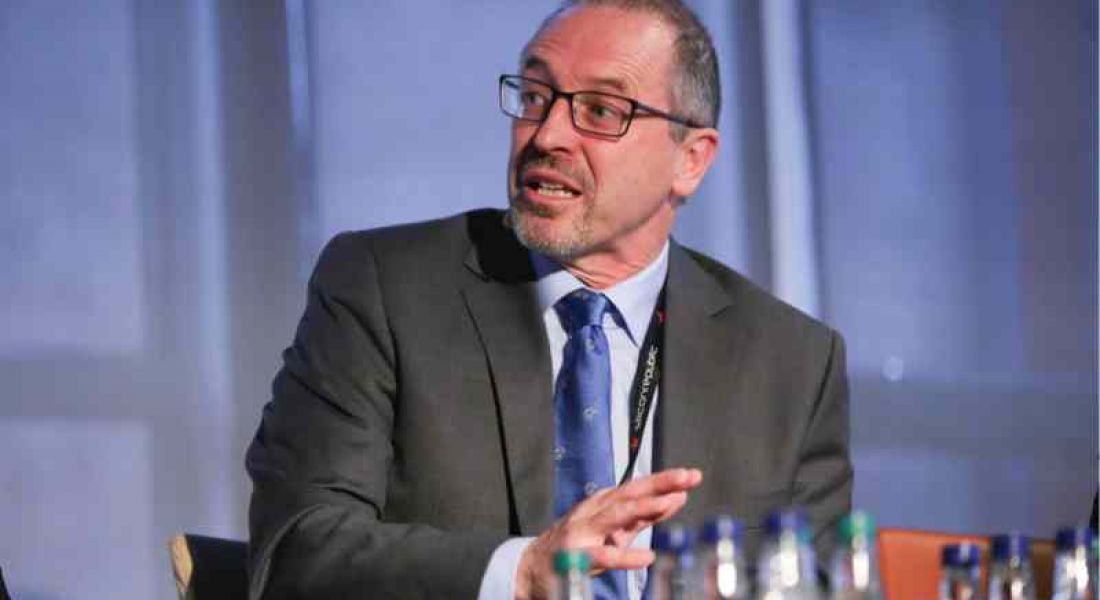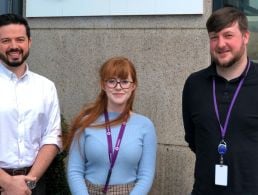While Ireland celebrates Science Week, in this first in a series of columns from Royal Irish Academy members, Prof Alan Smeaton says we must continually improve the quality of our STEM teaching.
To coincide with Science Week, over the coming days, members of the Royal Irish Academy will discuss various issues within and outside of the classroom that Ireland would do well to reflect upon as it looks to position itself as a learning and learned 21st-century society. Prof Alan Smeaton is our first contributor.
As a research scientist, it is my duty to keep abreast of developments in my field and I do this by reading newspapers and books, attending and presenting at conferences and other events, and by dialogue and interaction with my peers. It’s the usual type of activity for a scientist, and in this way I manage to stay up to date with things that are happening in my field.
As a professor, I also teach and have been lecturing to students at Dublin City University for more than 25 years. The topics that I teach are some of the fastest-moving in the technology area. My specialty is in information systems and I cover areas such as web search, social networks and access to visual multimedia. So think of Google, Facebook and YouTube — the science and technology behind these initiatives are among the things that I teach, and they are constantly evolving.
‘The best way to learn is to teach’
I enjoy my teaching, I find it satisfying and rewarding, but I also find it to be a learning and creative process. Frank Oppenheimer, younger brother of Robert, is credited with being the first to say that ‘the best way to learn is to teach’ and it is true. You can learn much about a topic by reading about it; you can learn much more by talking to others about it or making a presentation on it; but if you have to teach something to a class, whatever the age group or level, then you have to know the topic inside out. That is why I enjoy teaching, the act of teaching helps to deepen my understanding of what I teach and it is creative in that I will often get new ideas while preparing for class, or even sometimes while lecturing.
This brings me on to science, technology, engineering and mathematics (STEM) education. These subjects are not static topics as new discoveries are constantly being made and curricula are revised to reflect these discoveries.
A good STEM teacher is one who really understands the topics he or she is teaching because, as any teacher will tell you, pupils will respect a knowledgeable teacher and will easily see through one who is bluffing.
Thus it follows that if we are to have the best possible STEM education for our citizens, then we need to have the best-educated STEM teachers, and these teachers need to have a thorough knowledge and understanding of what it is they are teaching. That, in turn, leads me on to continuous professional development (CPD), which I believe is one of two absolute necessities if we are to improve the quality of our STEM education.
Continuous professional development for STEM teachers
In our primary and secondary schools, many of our STEM teachers learned their science in the not-so-recent past and, without CPD as an integral part of their profession, it is impossible to remain abreast of their field. In many industries in the technology and science areas, CPD is openly welcomed, encouraged and rewarded, not because it has to be but because employees and managers realise that their technology is constantly evolving, and so it behooves them to keep up to date with it.
I was delighted to read recently that the Teaching Council announced a new professional register where teachers will have to prove they are undergoing training and upskilling on a regular basis. That all sounds promising but the language here is disconcerting when it talks about ‘having to prove’ that CPD is taking place. This makes CPD sound like the National Car Test, something that we have to do, that has to be paid for, and that nobody likes.
When reading further, you discover that teachers themselves will define what is their own CPD, the details of which will not be finalised until March 2016, 18 months from now, with no timescale as to when it will subsequently be implemented although discussions on CPD can be held in schools using the extra hours from the Haddington Road agreement. This is not a good recipe for success.
What Ireland needs for good STEM education
The second absolute necessity that I believe we need for good STEM education is to focus on women in science and engineering. Ireland has always had great women scientists and engineers and continues to now.
We have role models, such as Aoife McLysaght, who was on the team that analysed the initial sequence of the human genome; Emma Teeling, who studies the genome of the bat and why it lives for so long; Mary O’Connell, who in 2014 had papers published in Science, Nature Reviews and Cell, three of the top-ranked journals in the world; and Linda Doyle, who directs the Centre for Telecommunications Value-Chain Research (CTVR) centre, one of the most successful of such centres in the world.
The world-class work of these women, and many more like them, deserves to be highlighted and used to inspire others to follow in their footsteps and help to make STEM an even more powerful contributor to this country.
Alan Smeaton is a professor of computing at Dublin City University (DCU) and director of the Insight Centre for Data Analytics at DCU. He has published more than 550 refereed papers and has more than 10,000 citations to his work. In 2012, Minister Seán Sherlock appointed him as a member of the Irish Research Council.
The Royal Irish Academy is an all-island independent body that brings together the worlds of academia, government and industry, to address issues of mutual interest. Drawing on its members’ expertise, it contributes public debate and public policy formation on issues in the humanities, science, technology and culture. Election to membership of the academy represents the highest academic honour in Ireland.
The views and opinions expressed by authors in this series are their own and do not reflect the position of the academy, but are simply an illustration of the various opinions reflective of the diverse academy membership.

This work is licensed under a Creative Commons Attribution 3.0 Unported License




